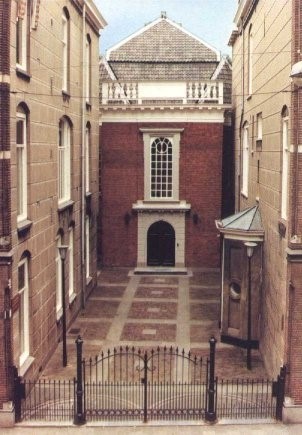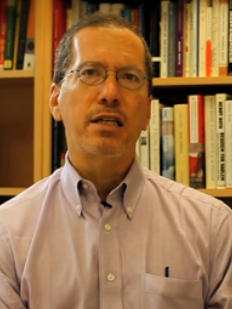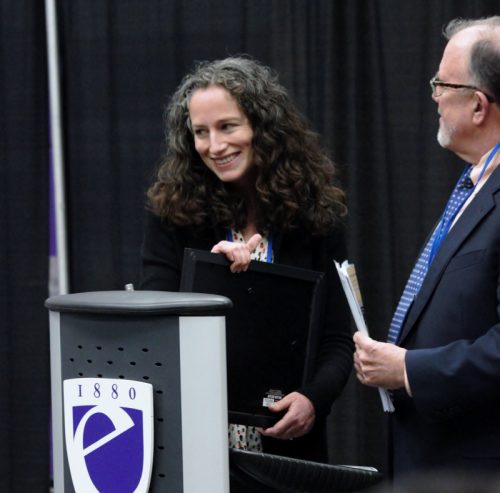June 14th, 2017
By James McGrath Morris
This year the Pulitzer Prize for “a distinguished and appropriately documented biography or autobiography by an American author” was awarded to an author who wrote neither a biography nor an autobiography. In fact, neither did the two finalists in this category. The prizewinner and the finalists all wrote memoirs.
The prize was awarded to The Return: Fathers, Sons and the Land in Between by Hisham Matar. The two finalists were In the Darkroom by Susan Faludi and When Breath Becomes Air by the late Paul Kalanithi.
Further muddying the water was that in 2016 the prize for Biography/Autobiography went to William Finnegan’s memoir, Barbarian Days: A Surfing Life, and one of the two finalists was also a memoir. The other finalist, Custer’s Trials: A Life on the Frontier of a New America, by T. J. Stiles, was moved by the board to the History category and given that prize.
The Pulitzer Prize board’s selection of memoirs two years running for the Biography/Autobiography category has sparked a debate among biographers. Most believe that memoir is a fundamentally different form of writing about a life in that it does not require any form of documentation, especially the kind of research that often distinguishes biographies.
BIO’s board is requesting to meet with the Pulitzer Prize administrator to discuss the continued commingling of biography, autobiography, and memoir. Currently, the Pulitzer Prize organization is seeking a new administrator, since Mike Pride announced his retirement.
To help sort out this this issue, TBC turned to David Nasaw, the distinguished historian, accomplished biographer, and chairman of the advisory board of the Leon Levy Center for Biography at City University of New York. Nasaw is the author of three biographies: The Chief: The Life of William Randolph Hearst; Andrew Carnegie; and The Patriarch: The Remarkable Life and Turbulent Times of Joseph P. Kennedy. The latter two were finalists for the Pulitzer Prize in the Biography/Autobiography category.
James McGrath Morris: You were invited to chair the Biography/Autobiography Committee in 2015 for the prize awarded in April 2016, isn’t that right?
David Nasaw: I was sort of surprised that they gave it to me, if only because I had been a finalist twice but never a winner. Of my three biographies, The Chief was never submitted to the Pulitzer committee, which was a bit of a scandal with Houghton Mifflin. The New York Times wrote about it. Houghton Mifflin just forgot to give them the book. My next two books were finalists. So, everything I say about the Pulitzers should be taken with a grain of salt, because I have a particular history with the prizes.
JMM: Nonetheless, you were chosen as the chairperson for the 2015 awards and you began work by studying the guidelines.
DN: We, the three of us who were on the committee, read the guidelines that we were given very, very, very carefully. And, we interpreted the guidelines as ruling out of competition any memoirs that were not documented. The guidelines that we were given said that for the nonfiction awards it was very important that the materials in these books be appropriately documented. And, they said that there should be some references, footnotes, endnotes, or in the text itself, which gave the reader the confidence that what was being said, or what was being reported, had actually taken place. The Pulitzer guidelines made that abundantly clear.
JMM: Did you have other things by which to guide your deliberations?
DN: In addition to those guidelines, I did a little bit of research, and we all did, on what was an autobiography. How is this defined? And, it was the opinion of the three of us that an autobiography was distinct from a memoir. An autobiography is the writing of a life by the person who lived that life. It does not necessarily have to be cradle-to-grave, but it is written to show how influences of place and time, childhood, adolescence, parenthood, affect the coming-to-age, and the activities, character, personality, and achievements of the adult. It is, in other words, a biography written by the person who is the subject of that biography.
It was our understanding that a memoir is a piece of a life, a moment of a life, a part of a life, and it is not documented. There is no corroborating material, there are no additional interviews, there are no newspaper articles, and there is no context provided. A memoir is a work—as the title makes clear—of memory. Autobiography and biographies are not works of memory.
JMM: What did you do then?
DN: So, we made our determinations clear to the administrator, who was in contact with us. And, we let it be known that after studying and applying the guidelines, we were not considering 30 percent or 40 percent of the books (I don’t know the exact number) that had been submitted under this category. When we finished our deliberations, we were asked to write a report. In it, we explained how we had made our decisions.
Twice afterwards I wrote to the administrator of the prize and I said, “We consider this very important, that the Pulitzer board has to make a decision as to what it’s going to do.”
JMM: What can it do?
DN: We recommended a number of changes to the Pulitzer board to remedy the situation we had encountered. It could establish memoir as a separate category; it could add memoir to the Biography/Autobiography category, so it’s Autobiography/Memoir/Biography; or, it could let publishers know that memoirs should be submitted in the general Nonfiction category. Whatever it decided to do, we argued against it continuing to accept “memoir” nominations in the Autobiography/Biography category because we thought that other jurors would do as we had done, would read the guidelines as we had read them, and not consider the memoir submissions for the prize.
JMM: Then the subsequent selections in 2016 and 2017 must have been a shock?
DN: You can imagine my surprise when, the following year, a book that we would not even have considered for the award, given our reading of Finnegan’s book, was given the prize. And the Stiles book, which was a biography, was moved out of the category, into History. And the second runner-up was a memoir. The following year, this year, there were no autobiographies or biographies. The prize was given to another memoir, and again the runners-up were memoirs.
So, I, having been a judge, I’m not saying the jurors were wrong to do this, I would never say that. But I will say that the guidelines are so written that one committee could read them in a way that appears to be almost diametrically opposed to the way the other committees read them. There’s got to be something wrong there.
JMM: If you were made emperor of the Pulitzer Prize, what would you do to fix this?
DN: I’d simply make a category for memoir. When these categories were first designed, there were very few memoirs. The committee has adjusted all the other awards, certainly all the journalism awards.
JMM: Very often they have.
DN: On a regular basis. Why can’t it pay the same attention to the arts and letters awards?
JMM: And you would be okay with keeping autobiography and biography together as one?
DN: Sure. Sure. And, if the Pulitzer board doesn’t want to do that, then it should add memoir to that list. The fact that Amazon puts memoir into the same category as autobiography and biography doesn’t mean that we should do the same. There has historically been a difference between autobiography and memoir. And a memoir, as we know, is not in the same genre, I don’t think, as biography.
JMM: I was a judge recently on the Western Writers of American prize for best biography. I took out a memoir from the pile of books I was to judge because I didn’t see how you could compare it to biography.
DN: That’s exactly what we did for the 2015 awards. And, I assume from looking at the judging, that’s what had happened earlier.
JMM: When you think of presidential autobiographies, they have a staff who uses all these memoirs and calendars to get the dates right. Their autobiographies may be self-serving, but still, they are biographies of their lives.
DN: Yeah. So, I don’t know what’s going on. I think it is an extraordinary disservice to memoir and to biography. Because these are separate literary genres. It just doesn’t make any sense to me. And again, memoirs are important enough as a genre in the twenty-first century, that they should have their own award.



